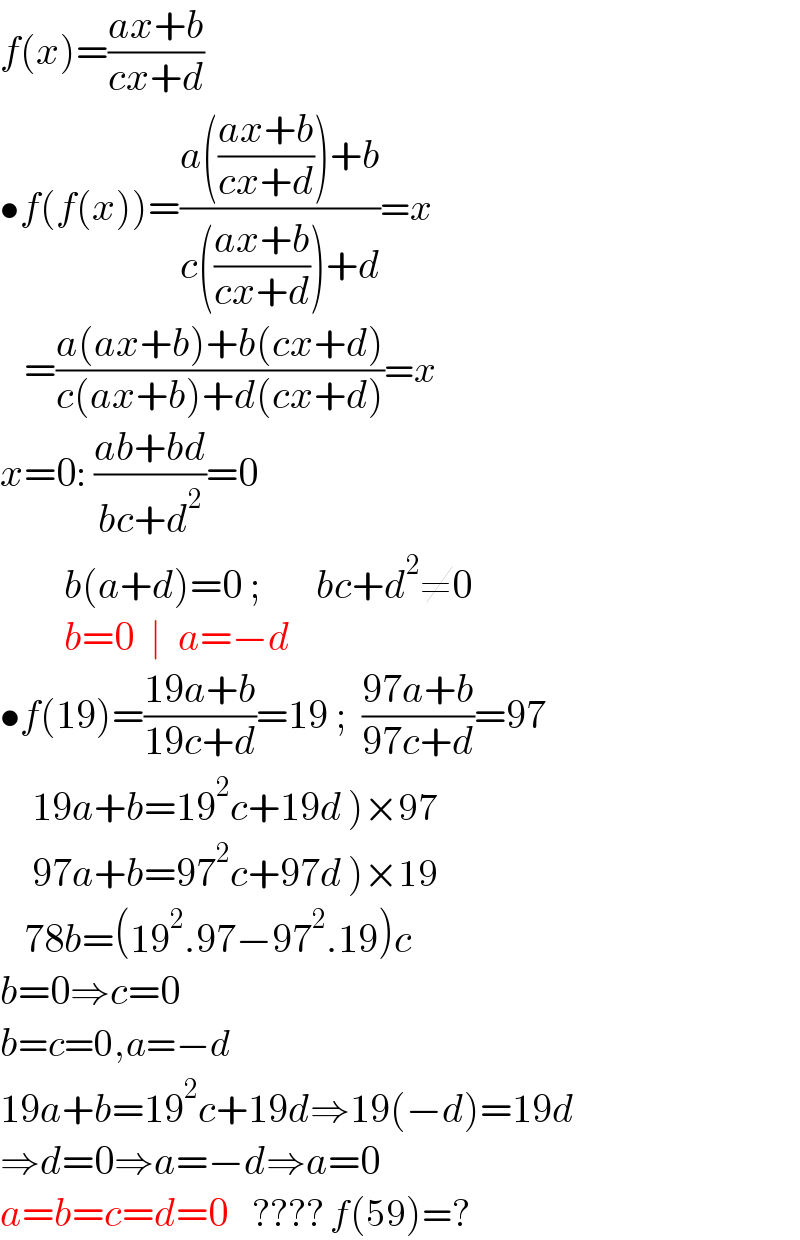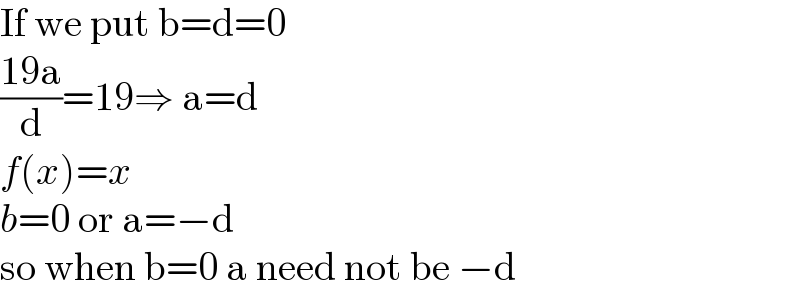
Question and Answers Forum
Previous in Relation and Functions Next in Relation and Functions
Question Number 152151 by john_santu last updated on 26/Aug/21

Answered by Rasheed.Sindhi last updated on 26/Aug/21

Commented by john_santu last updated on 26/Aug/21

Commented by prakash jain last updated on 27/Aug/21

Commented by Rasheed.Sindhi last updated on 27/Aug/21

Answered by prakash jain last updated on 26/Aug/21

Commented by Rasheed.Sindhi last updated on 26/Aug/21

Commented by prakash jain last updated on 26/Aug/21

Commented by john_santu last updated on 27/Aug/21

Commented by prakash jain last updated on 06/Sep/21

Answered by john_santu last updated on 27/Aug/21

